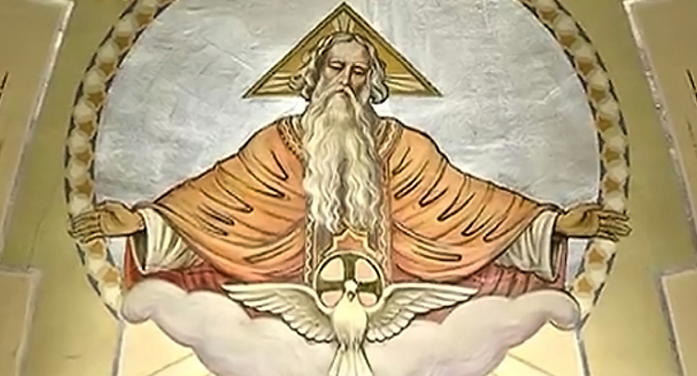The Paradox Par Excellence
Our Father “desires all men to be saved and to come to the knowledge of the truth”(1 Tim. 2:3-4). He does not withhold anything good from you. He does not wish you to be perished (2 Pet. 3:9). His commandment is “that you love one another, even as I have loved you (John. 13:34). This commandment summarizes all the others, and expresses His entire will.
“He has made known to us the mystery of His will, according to His good pleasure that He set forth in Christ… to gather up all things in Him, things in heaven and things on earth. In Christ we have also obtained an inheritance, having been destined according to the purpose of Him who accomplishes all things according to His counsel and will”(Eph. 1:10-11) We ask insistently for this loving plan to be fully realized on earth as it is already in heaven.
In Christ, and through His human will, the will of the Father has been perfectly fulfilled once for all. Jesus said on entering into this world: “Lo, I have come to do your will, O God (Heb. 1:7, Ps. 40:7). Only Jesus can say: “I always do what is pleasing to Him” (John. 8:29). In the prayer of His agony, He consents totally to this will: “not my will, but your, be done”(Luk.22:42), (John. 4:34). For this reason Jesus “gave himself for our sins, to deliver us from the present evil age, according to the will of our God and Father”(Gal. 1:4). “And by that will we have been sanctified through the offering of the body of Jesus Christ once for all”(Heb. 10:10).
“Although He was Son (Jesus) learned obedience through what He suffered”(Heb. 5:8). How much more reason have we, sinful creatures, to learn obedience- we who in Him have become children of adoption. We ask our Father to unite our will to His Son’s, in order to fulfil His will, His plan of salvation for the life of the world. We are radically incapable of this, but united with Jesus and with the power of His Holy Spirit. We can surrender our will to Him and decide to choose what His Son has always chosen: to do what is pleasing to the Father(John. 8:29).
In committing ourselves to[Christ], we can become one spirit with Him, and thereby accomplish His will, in such a way that it will be perfect on earth as it is in heaven.
Consider how [Jesus Christ] teaches us to be humble, by making us see that our virtue does not depend on our work alone but on grace from on high. He commands each of the faithful who prays to do so universally, for the whole world. For He did not say “thy will be done in me or in us,” but “on earth”, the whole earth. It is to banish error from the earth, to take truth root in it, to destroy all vice in it, to flourish virtue everywhere. Then it no longer differs from heaven.
By prayer we can discern “what is the will of God” and obtain the endurance to do it (Rom. 12:2). Jesus teaches us that one enters the kingdom of heaven not by speaking words, but by doing “the will of my Father in heaven”(Mat. 7:21).
“If anyone is a worshiper of God and does always His will, God listens to him.” Such is the power of the Church’s prayer in the name of her Lord, above all in the Eucharist. Her prayer is also a communion of intercession with the all-holy Mother of God and all the saints who have been pleasing to the Lord because they willed His will alone and always. It would not be inconsistent with the truth to understand the words. “Thy will be done on earth as it is in heaven,” to mean: “in the Church as in our Lord Jesus Christ Himself”: or “in the Bride who has been betrothed, just as in the Bridegroom who has accomplished the will of the Father.”



